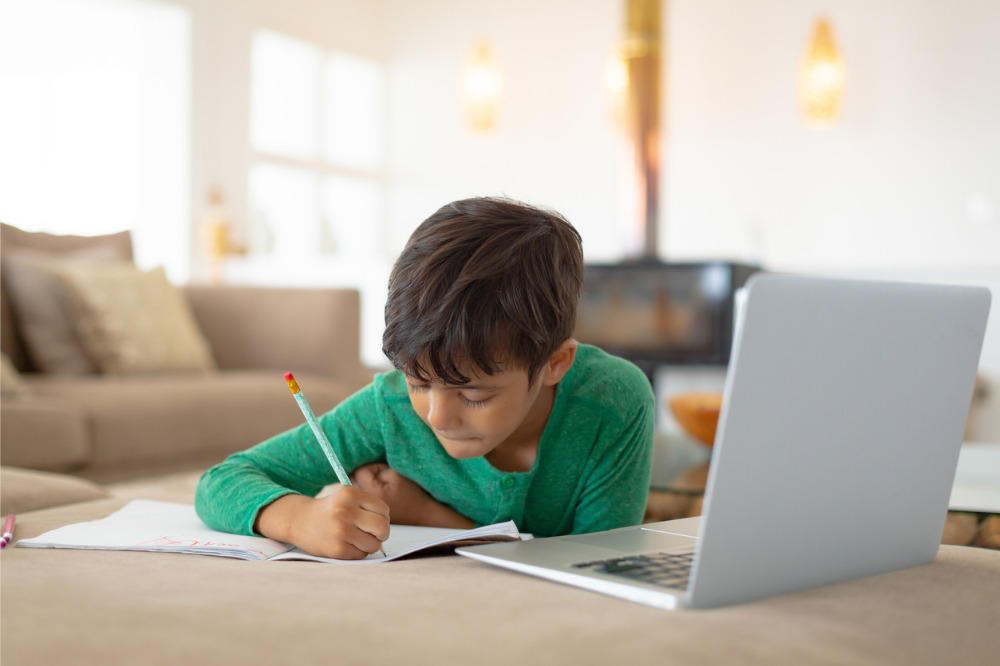
By Dr Terry Harding
Despite some beliefs, home schooling is not the new kid on the block. It dates back to the late 1700s with people such as Isabella Rosson in Sydney, Thomas McQueen on Norfolk Island and Mary Johnson at Parramatta, who taught many children in their homes from 1788 onwards. Similarly, the Reverend Richard Johnson, Australia’s first Minister of Religion, and his wife Mary, taught their children at home as did Johnson’s successor, the Reverend Samuel Marsden and his wife, Eliza. Thus, formal education in Australia was born in the family home.
Home education is the practice where parents educate their children at home rather than sending them to an on-campus school. Two distinctive features of home education are that:
- The family is the main pedagogical site
- Parents are responsible for facilitating the education
The modern home education movement is comprised of two forms:
Home schooling – where the parents are wholly responsible for their children’s education.
Distance education – where the children are enrolled in a school of distance education, but are educated at home, thus the parents share the responsibility for their children’s education with the school.
In both methods the parents are the main facilitators of pedagogy.
A review of the research into how parents can best contribute to a child’s academic success revealed that quality ‘at-home’ parenting was the most powerful factor. Parents who consistently provided “a secure and stable environment, intellectual stimulation, parent-child discussion, good models of constructive social and educational values and high aspirations relating to personal fulfilment and good citizenship” are most likely to see their children do well academically. Home educators are one group of parents who commit to leverage this impact of quality ‘at-home’ parenting for their children’s formal education.
Socio-cultural theory supports the view that home schooling can work well. It proposes that a child’s learning best takes place in real-world settings with a caring adult taking a child’s learning from the known to the unknown in the teaching/learning process. Socio-cultural scholars advocate that a child’s parents are well placed to teach their children, given the deep relationship between the parent and the child. For example, most parents have taught their child how to speak and understand their own language by the age of five. This is a very difficult cognitive undertaking. Yet parents achieve this with little conscious effort. Though often unrecognised, parents are indeed effective teachers.
The relationship between the home educator and their child contextualises the teaching role of the home educator. The parent and the child share genetic information, a common ancestry, family bonds, psychological experiences, historical experiences, cultural identities, and common values in the process of doing life together. These shared phenomena facilitate a trust that is turned to pedagogy. Home education maximises the opportunity for situated socio-cultural learning in and around the family and across the broader community. It provides the real-world context for learning, which differs significantly from the traditional school-based context.
Home Education Association (HEA) data shows that home school registrations have increased by at least 9 per cent in all Australian states and territories between 2019 and 2021. All states and territories apart from Tasmania have reported over a 19 per cent increase. From 2019 to mid-2021, Queensland had the highest increase in home school registration with a 46 per cent change.
However, it’s Australian Christian Home Schooling’s student enrolments which have seen an especially large increase in the program, with numbers rising by 62.1 per cent.
There are many factors that have contributed to this education sea change, including the COVID-19 pandemic. However, many families have chosen to make the shift because of lifestyle changes, with home schooling meeting their needs and schedules in a way mainstream schooling has been unable to.
One such family are the Jantos’ from Fingal Head. Their three children, Oliver (year three), Charlie (year four) and Flynn (year five) have now been enrolled with ACHS for the last 12 months. Mum Sarah made the decision to switch from traditional schooling after seeing that her children required extra support for their individual learning needs and seeking more flexibility to suit their lifestyle.
Recent ACHS research into the reasons why parents choose to home educate their children is enlightening. When we remove the issues of the importance of religious teaching and parents’ religious values from the data, there is a strong emphasis of a lack of trust in government among these parents. The lack of trust involves:
Parents do not trust the state governments to deliver satisfactory educational standards for their children
- Many of these parents do not trust the government to respect their values as the carers of their children
- These parents do not trust government requirements re.
- The health requirements for their children i.e. covid restrictions including lockdowns, mask wearing, isolation etc.
- The possibility of the imposition of vaccinations on school children
- The possibility of children catching COVID
When we consider the research and insights from parents, educators can learn a lot about what concerns parents have about the quality of school-based education.
Home schooling provides a viable choice for parents and carers to immerse themselves in their child’s education and align their family’s values to that education.
Parents who are interested in finding out more about home schooling can go to the ACHS website.
About Dr Terry Harding
Dr Harding, Manager Australian Christian Home Schooling, is one of the pioneers of both home schooling and non-government distance education in Australia. He has been influential in the development of both forms of education and has been the manager Australian Christian Home Schooling for 25 years. Dr Harding continues to inform both state and federal governments concerning home schooling and non-government distance education, as they develop policy for both of these modes of education.


